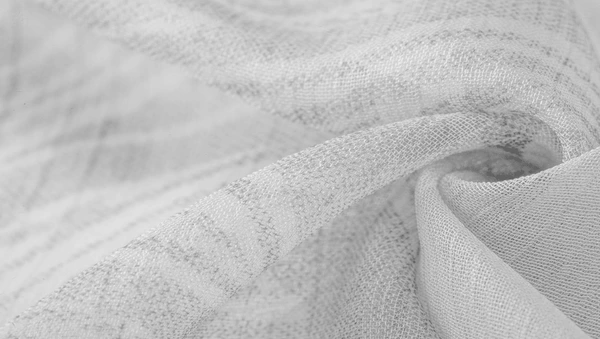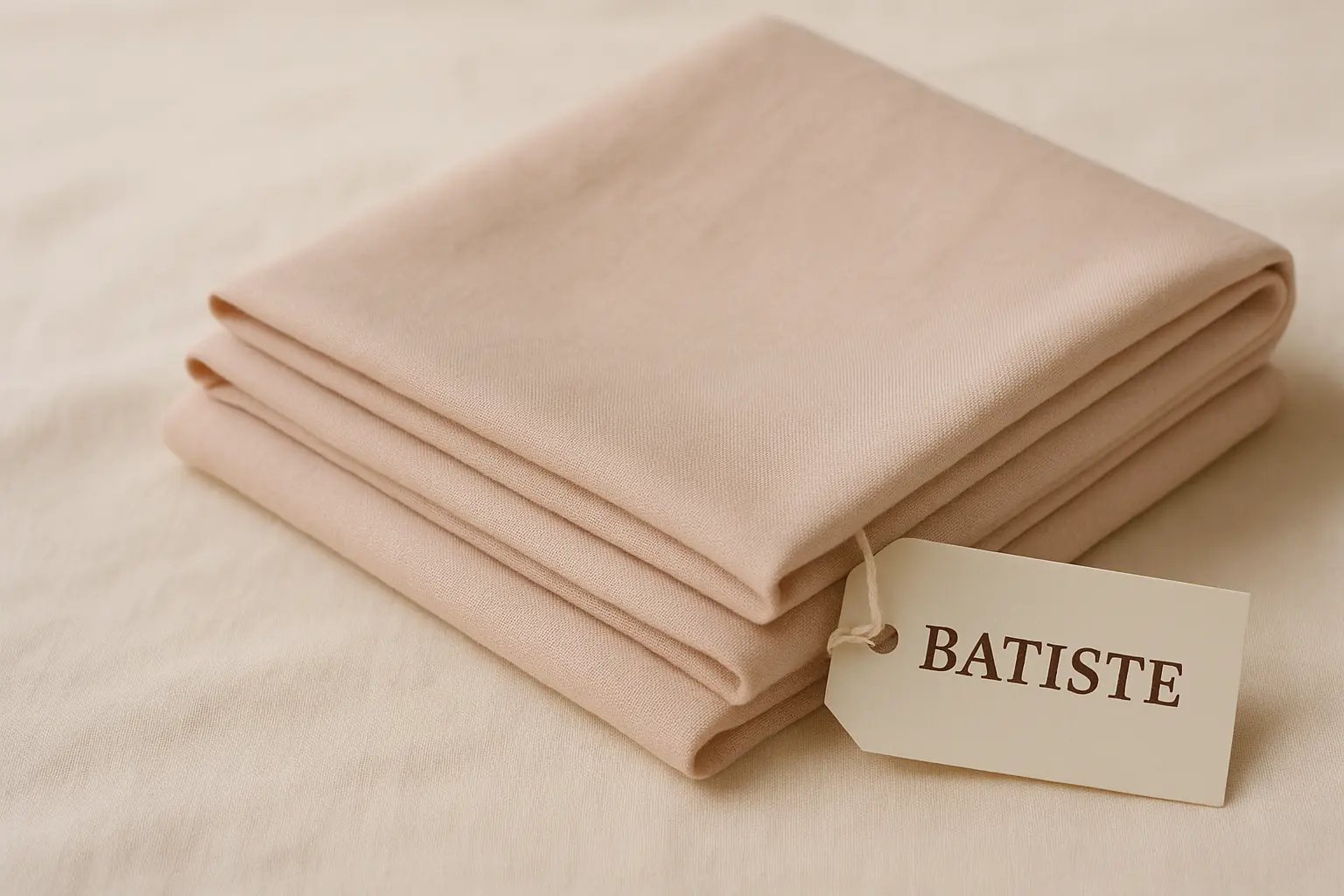Batiste fabric is a time-honored textile known for its exceptional lightness, fine weave, and soft drape. Though traditionally used in luxury garments and heirloom linens, Batiste has seen a resurgence in demand thanks to modern applications in premium bedding, babywear, lingerie, and even high-end medical textiles.
For B2B buyers, designers, and sourcing managers, understanding Batiste’s unique value proposition can unlock new opportunities in product differentiation and consumer satisfaction.
What Is Batiste Fabric?
Batiste is a lightweight, plain weave fabric made from fine yarns, originally of linen but now often composed of cotton, polyester, or blended fibers. It is closely woven, semi-sheer, and naturally soft, with a smooth, slightly crisp hand feel.
Known for its breathable yet durable structure, Batiste is ideal for applications requiring comfort, delicacy, and elegance.

Key Characteristics of Batiste Fabric
| Feature | Description |
|---|---|
| Weight | Light (around 60–100 GSM) |
| Weave Type | Plain weave (tight, balanced structure) |
| Sheerness | Semi-sheer to opaque depending on fiber content |
| Drape | Excellent, soft and fluid |
| Hand Feel | Smooth, crisp yet gentle |
| Fiber Sources | Cotton (most common), polyester, silk, linen |
| Finishing | Often mercerized or calendered for sheen and smoothness |
Why Choose Batiste for Textile Manufacturing?
🌬️ 1. Exceptional Breathability
Batiste’s fine weave allows airflow while maintaining privacy and softness — ideal for summer bedding, underlinings, and warm climates.
👶 2. Gentle on Skin
Its soft texture makes it a favorite in baby products, lingerie, and luxury pillowcases, especially when made from combed cotton or TENCEL™ blends.
🧺 3. Lightweight Yet Durable
Despite its delicate appearance, Batiste holds up well under moderate wear and laundering when made from long-staple cotton or polyester blends.
👗 4. Elegant Appearance
Batiste has a natural matte or slight sheen, perfect for layered garments, bridal wear, or premium sheers in hospitality and home décor.
Common Applications of Batiste Fabric
| Industry / Segment | Typical Use |
|---|---|
| Bedding & Home Textiles | Pillowcases, summer sheets, duvet linings |
| Apparel | Blouses, lingerie, bridal veils, nightwear |
| Baby Products | Swaddles, diapers, dresses, crib liners |
| Medical Textiles | Surgical masks, underlays, gowns |
| Lining Fabrics | Dressmaking, outerwear linings |
Batiste vs. Similar Fabrics
| Fabric | Comparison to Batiste |
|---|---|
| Voile | Even lighter, more transparent |
| Poplin | Heavier and more structured |
| Muslin | Looser weave, less refined texture |
| Cambric | Similar but stiffer; used more in shirting |
| Lawn | Finer and crisper, but less soft |
Manufacturing Considerations
Fiber Selection
- Use combed cotton or modal for softness and purity.
- For wrinkle resistance and cost control, cotton-polyester blends work well.
Finishing Options
- Mercerization for increased luster and durability
- Calendering for a smooth surface
- Anti-pilling treatment for longevity in home textiles
Sustainability Tip
Offer organic cotton batiste for eco-conscious consumers or boutique buyers in Europe and North America.
Final Thoughts: Why Batiste Belongs in Your Product Line
For manufacturers, retailers, and hospitality brands seeking lightweight luxury without compromising comfort or integrity, Batiste is an excellent material choice. Its timeless appeal, softness, and breathable weave suit both traditional and modern applications — especially as consumers increasingly value tactile elegance and skin-friendliness.


Leave a Reply